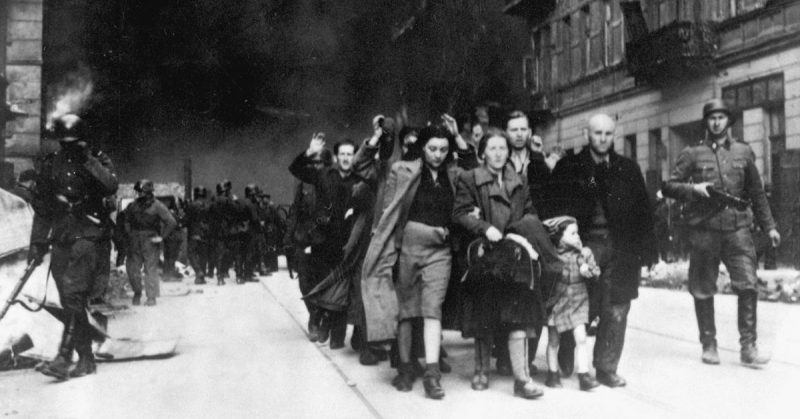Anna Stupnicka-Bando was a young girl in Poland in 1941. She and her mother would sneak food and books to Jews in the Warsaw Ghetto. Now 87, she still remembers it like it was yesterday.
On one covert mission, they met a Mr. Alter. He begged them to save his daughter Liliana from the Nazis.
The 12-year-old Stupnicka-Bando, a devout Christian, and her mother agreed to get the 11-year-old out of the ghetto. They put Liliana in Anna’s schoolgirl uniform (a navy blue coat and a beret with the edelweiss symbol on it), which allowed Lilana to pass as a Christian.
Stupnicka-Bando hasn’t forgotten how Liliana’s father cried when they said goodbye.
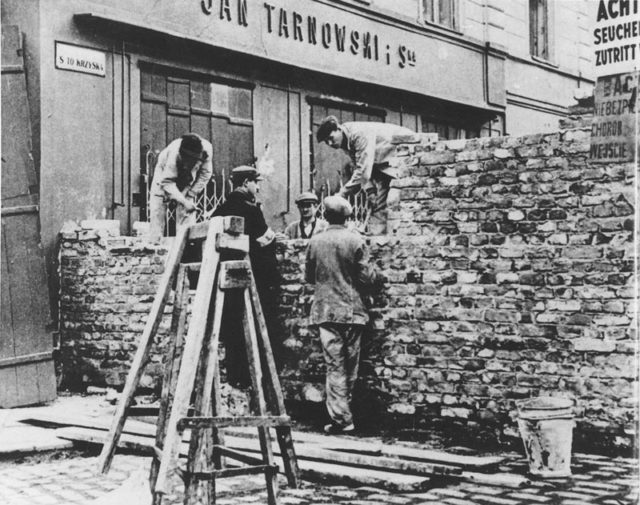
Liliana lived with Anna’s family, pretending to be her cousin. They had fake identification papers made with Anna’s mother’s maiden name. They lived in a constant state of fear that they would be discovered. Often, they had to lie to nosy neighbors.
“We felt great fear and danger saving those people. We knew of others killed for saving Jews, but we also knew it was the right thing to do,” she said. “We had to stand and do what was right. If we didn’t, they would have been killed. My only regret is that I could not do more.”
Liliana survived the war, thanks to the efforts of Stupnicka-Bando and her family.
The U.S. Holocaust Memorial Museum reports that Stupnicka-Bando and her mother saved four Jews from the Nazi occupation. In addition to Liliana, they gave shelter to Ryszard Grynberg and they obtained an ID card for Mikolaj Borenstein so that he could work.
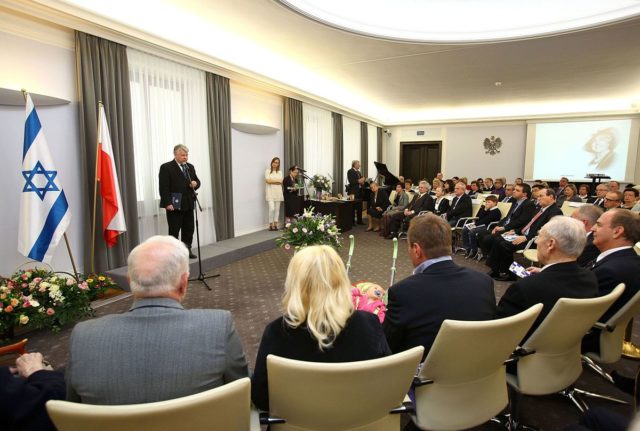
Today, Stupnicka-Bando is a retired neurologist. She serves as the president of the Association of Polish Righteous Among the Nations. That organization’s office in Warsaw is in danger of closing due to financial problems.
“All we want in our life is to share our stories. It’s very difficult to do it without support,” Stupnicka-Bando said. “Each month we are not sure if we will keep our small office. If we will lose it, all activities will be wasted.”
Jonny Daniels, founder of From the Depths, an educational organization, has met several Poles who were awarded the “Righteous among the Nations” distinction for saving Jews during the Holocaust. His non-profit organization looks to locate stolen headstones and return them to the country that once had the largest Jewish population in Europe, but after meeting Stupnicka-Bando and her associates, he decided that he wanted to help those who had risked their lives to help others.
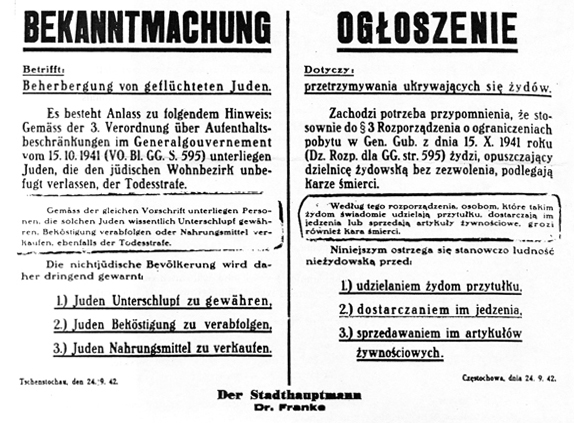
This is a categorical warning to the non-Jewish population against:
1) Providing shelter to Jews,
2) Supplying them with Food,
3) Selling them Foodstuffs.
Częstochowa 9/24/42
Der Stadthauptmann
Dr. Franke
Warschau
His group is putting together an effort to “honor the righteous while we still can, doing what’s right by them and giving them what they deserve.”
Now, Daniels is racing time to honor the remaining living Christians who saved Jews from the concentration camps. His aim is to help these elderly Polish heroes pay the rent for their office, help pay for meals for the needy in their group, and place flowers on the graves of the departed, “just to honor decent goodness.”
Daniels once gave a member a flower for her birthday.
“She was so touched and I was so shocked that nobody had sent her flowers. On the spot, I took upon myself to send each one of them flowers on their birthday every year,” Daniels said. “The youngest is 83, and the majority don’t have their spouses. They’re completely alone.”
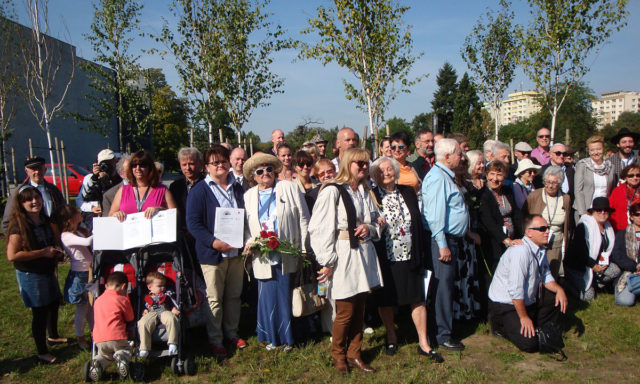
The tiny office is not handicap-accessible. They have to hold meetings in the foyer when members arrive in wheelchairs.
“There are two bedridden members; one is 102 and the other 98, and a younger member, a 93-year-old, who drives to bring them food,” Daniels said. “I pledged to help the Righteous Among the Nations as much as I can, to buy them flowers on their birthdays, and rent a new office and meeting place for them in Warsaw.”
He’s also planning a dance party for them “with 1920s music to give them a good time, because they deserve it.”
What motivates him to do so much for them? According to Daniels, they “stood up and did the right thing” even in the face of extraordinary obstacles and the threat of being killed.
“When we see everything that is going on in the world, it is scary times, and it reminds us of how it was many years ago,” Stupnicka-Bando said. Therefore, “it warms our heart to see young men like Jonny so involved and interested in our stories and to help us.”
